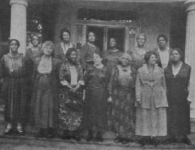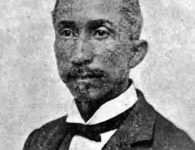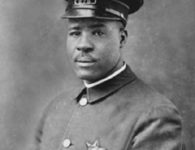Aretha Franklin, the “Queen of Soul” was the first woman inducted into the Rock and Roll Hall of Fame. Franklin was always a singer of great passion and control whose finest recordings define the term soul music in all its deep, expressive glory.
It took Aretha awhile to find that fire in the studio. Before she signed with Atlantic, she spent six years at Columbia Records. She was signed to the label in 1960 by John Hammond, the label’s legendary producer and talent scout, who’d heard a demo she cut in New York Her tenure at Columbia yielded nine R&B hits (the most memorable being “Today I Sing the Blues” and “Runnin’ Out of Fools”). She also scored some pop crossovers (“Rock-a-Bye Your Baby With a Dixie Melody” and “Won’t Be Long”) that were was far removed from the fiery, gospel-fueled soul for which she would become known.
Hammond produced Franklin’s most satisfying Columbia sides, but overall the nine albums she cut for the label failed to fully tap her capabilities. Paired with pop-minded producers, she dabbled in a variety of styles without truly finding her voice. Franklin was never averse to the idea of crossover music, being a connoisseur of pop and show tunes, but she needed to interpret them in her own soulful way.
In Hammond’s words, “I cherish the albums we made together, but Columbia was a white company who misunderstood her genius.” Jerry Wexler was waiting in the wings to sign Franklin when her contract with Columbia expired. With her switch to Atlantic in 1966, Aretha proceeded to revolutionize soul music with some of the genre’s greatest recordings. Her most productive period ran from 1967 through 1972. The revelations began with her first Atlantic single, “I Never Loved a Man (the Way I Loved You),” a smoldering performance that unleashed the full force of Franklin’s mezzo-soprano. Offering call-and-response background vocals on this and other tracks were Aretha’s sisters, Carolyn and Erma.
The Sweet Inspirations, a Memphis-based vocal quartet that included Cissy Houston (mother of Whitney), also contributed background vocals to Aretha’s work in the studio and onstage. Franklin’s greatest triumph –and an enduring milestone in popular music – was “Respect.” Her fervent reworking of the Otis Redding-penned number can viewed in hindsight as an early assertion of selfhood in the women’s movement. It was the opening track on I Never Loved a Man the Way I Loved You, her classic first album for Atlantic. Other memorable tracks from this pivotal release are “Do Right Woman – Do Right Man,” “Dr. Feelgood” and her cover of “A Change Is Gonna Come,” Sam Cooke’s civil rights-era anthem. The Rolling Stone Album Guide contends that I Never Loved a Man the Way I Loved You “may stand as the greatest single soul album of all time.”
Read More: Aretha Franklin Biography | The Rock and Roll Hall of Fame and Museum





















1 Comment
“R.E.S.P.E.C.T”